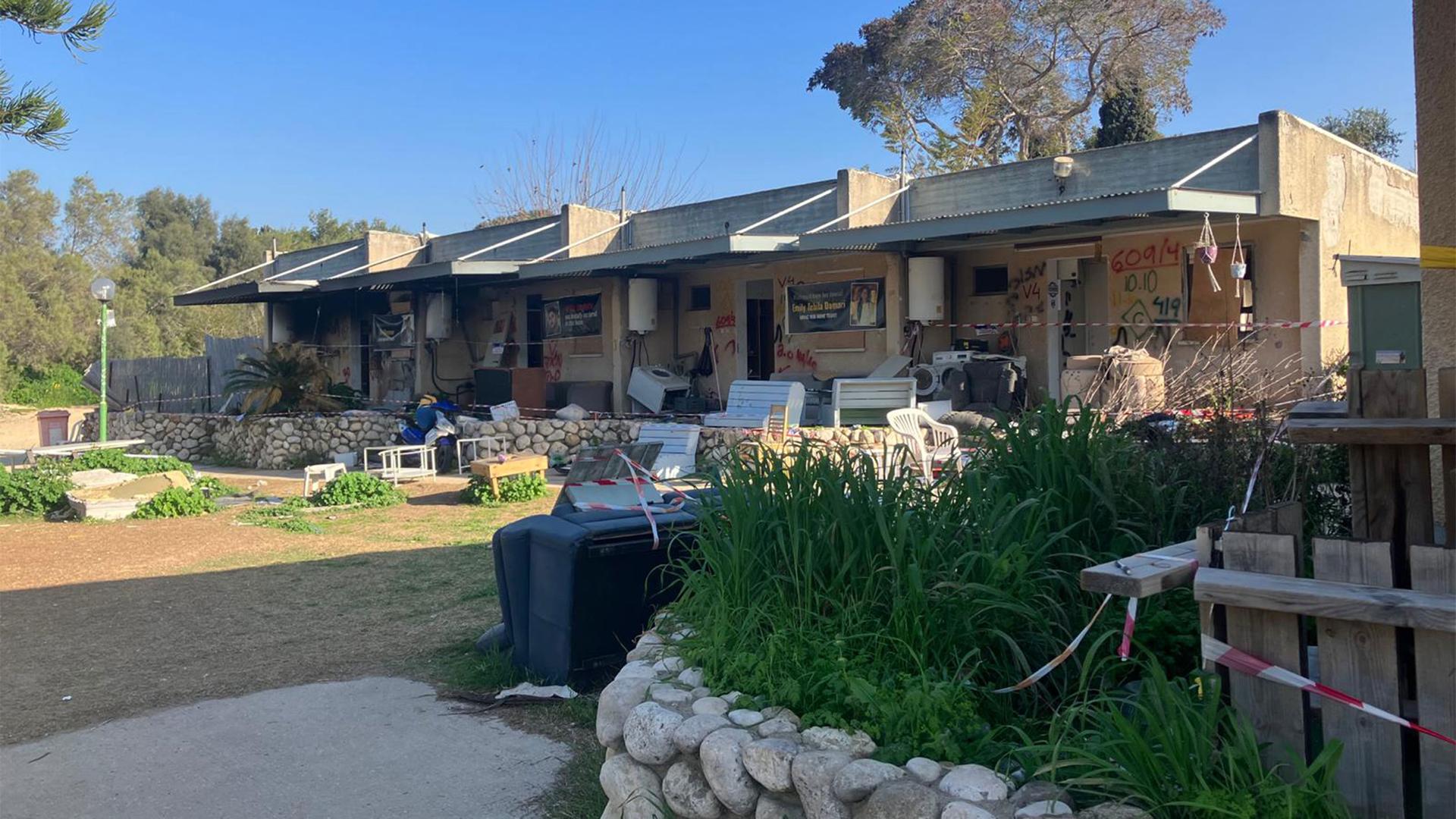When their kibbutz was attacked by Hamas on Oct. 7, Ayelet Cohen and her husband, Schachar Shnurman, miraculously survived by hiding in a safe room.
After spending 30 hours inside to the soundtrack of gunshots and screams, Israeli soldiers showed up in an armored jeep and brought them to safety at a nearby gas station.
Suddenly, the couple found themselves in a sea of hundreds of other rescued kibbutz residents who were all lining up to be bused off to other parts of the country. When a soldier asked Cohen and Shnurman where they wanted to go, they said back home to the kibbutz.
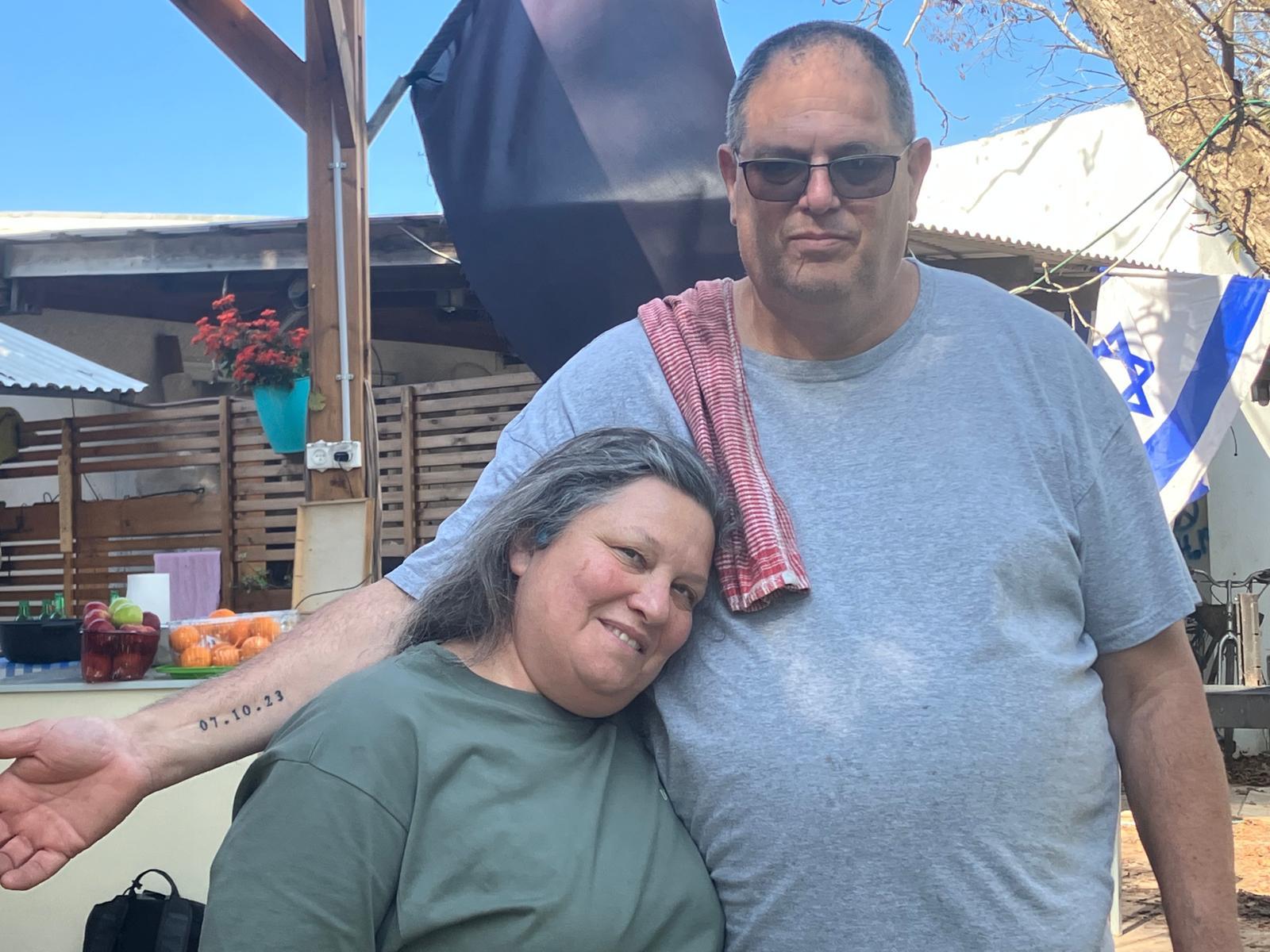
“He looked at us with a lot of pity in his eyes,” Cohen said. “And he said, it’s going to take us three to four days to clear the kibbutz from terrorists.”
It would take a while for them to learn that 63 of the kibbutz’s 970 residents had been murdered, 18 were kidnapped and dozens injured. For a while, the pair lived in a hotel in Tel Aviv. But they couldn’t stand it. After a month of crying and another month of reflecting, on Dec. 10, they became among the first residents of the Kfar Aza kibbutz to head back home for good.
For Cohen, even with the sound of heavy bombing less than a mile away in northern Gaza, being in her own bed gave her the best sleep she had in months.
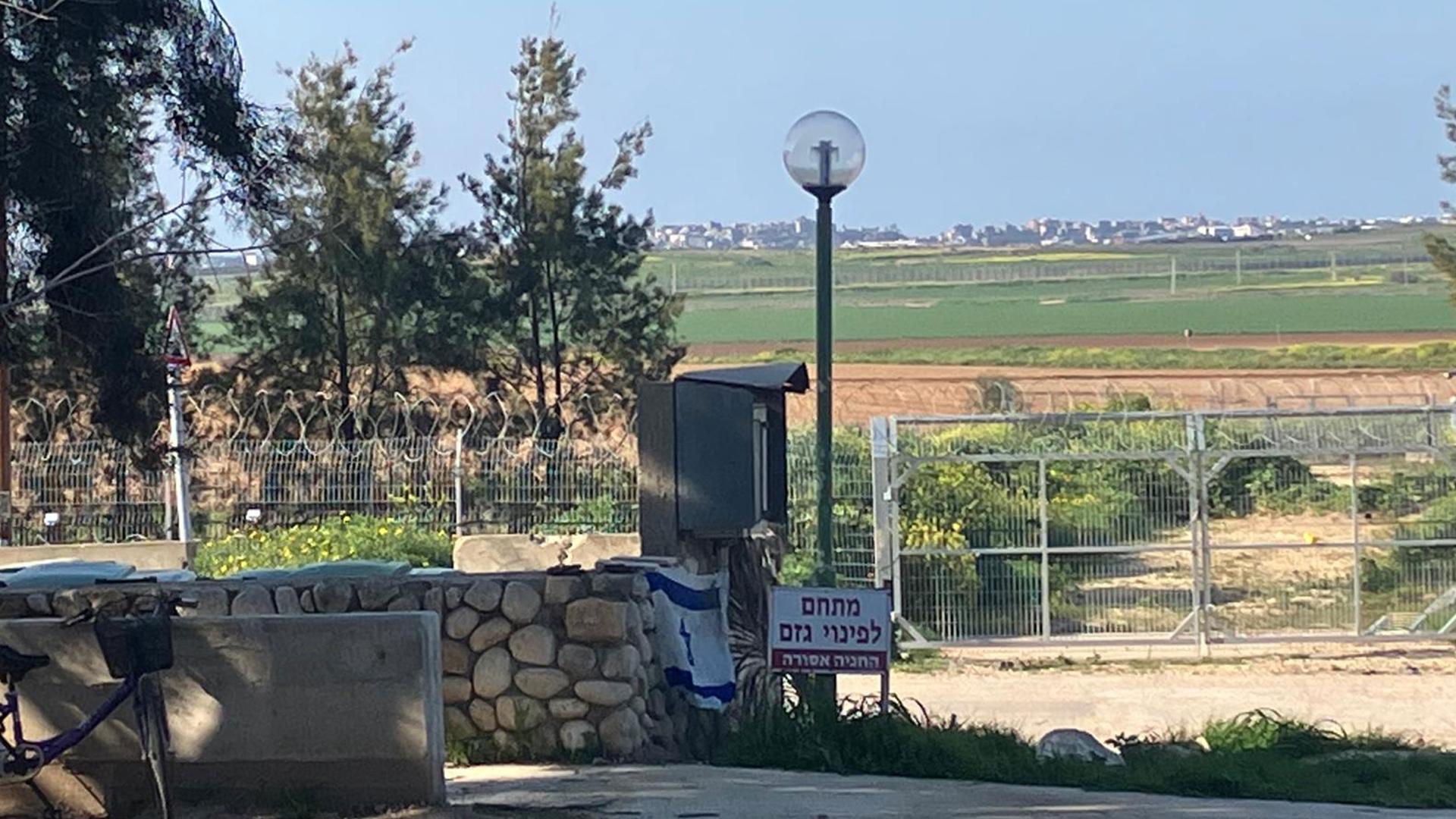
“Even if you are going to a wonderful hotel and you’re having a wonderful time, there’s always that night when you go back home and you sleep in your own bed and you feel great,” Cohen said.
Today, Cohen and Shnurman are among only 20 or so residents who have come back to the kibbutz full time.
One thing Shnurman misses most though — the sound of children playing.
“Kids are the noise of life,” he said. “I’m very happy to hear laughing, talking.”
These days, most visitors to the kibbutz are journalists or groups of Israelis and even tourists who come to survey the destruction.
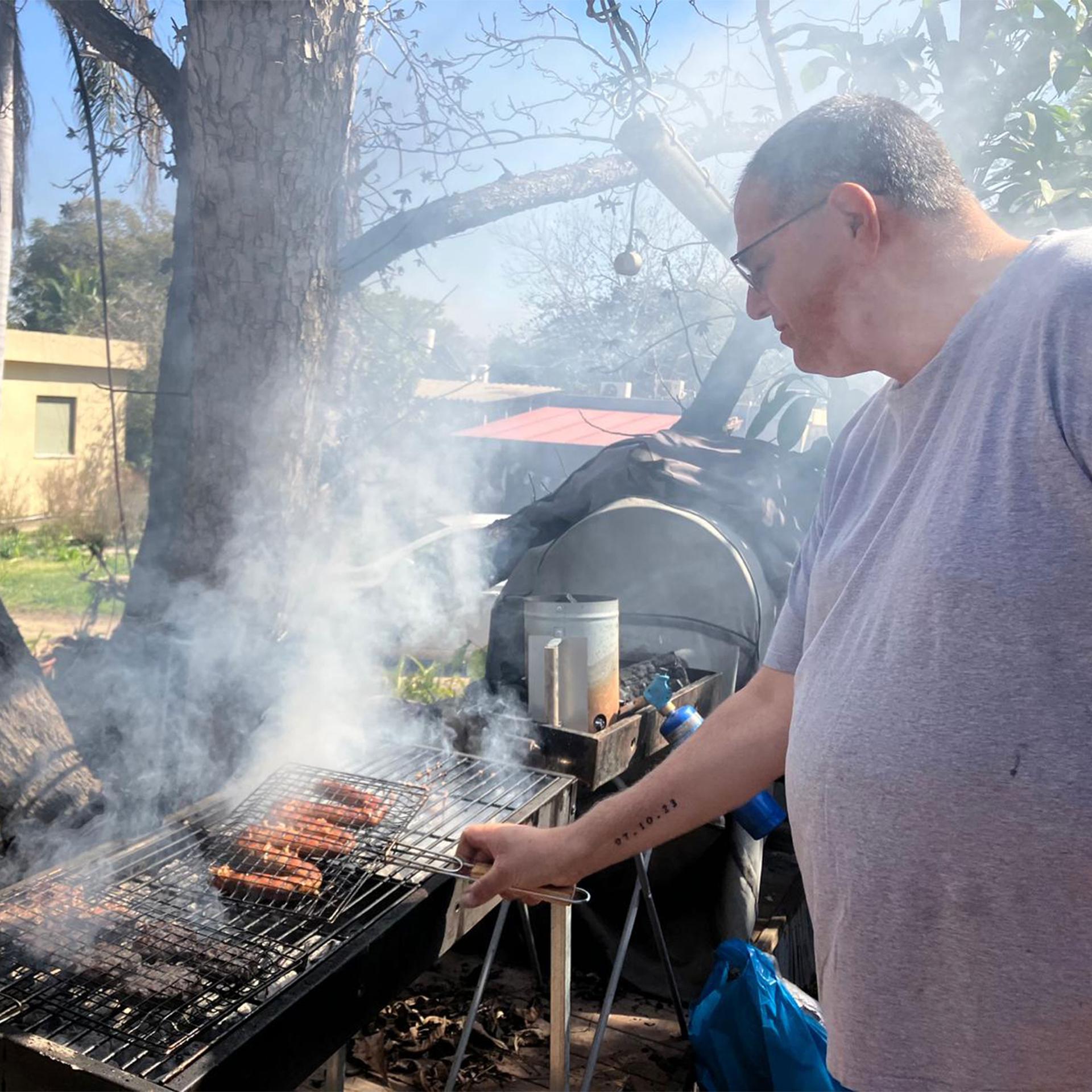
“We are all doing what we can to support each other in these times,” Cohen said.
“Some people are able to go to rallies to support the hostages. I hate crowds. But cooking a big meal like this, this I can do. It isn’t work for me.”
She prepares the salads and Shnurman mans the grill.
That’s when he admits that in the first days of coming back to the kibbutz, he felt uncomfortable with the strangers passing through to look at the damage.
But over time, Shnurman said that he and Cohen discussed things, and decided they wanted people to come to the kibbutz so they could understand what happened there.
“You must open your door,” he said. “So, we open and show them and talk with them.”
“I think it’s a life-changing experience to see what happened,” Cohen said. “There was nothing that somebody would tell you that would be as strong as seeing it [with] your own eyes.”
Cohen presented several blocks of flats — most of which were occupied by young people in their late teens and early 20s — one of the worst-hit areas in Kfar Aza.
Many of the homes are charred to a crisp. There are smears of blood on some of the front doors and burned mattresses scattered in front across the road.
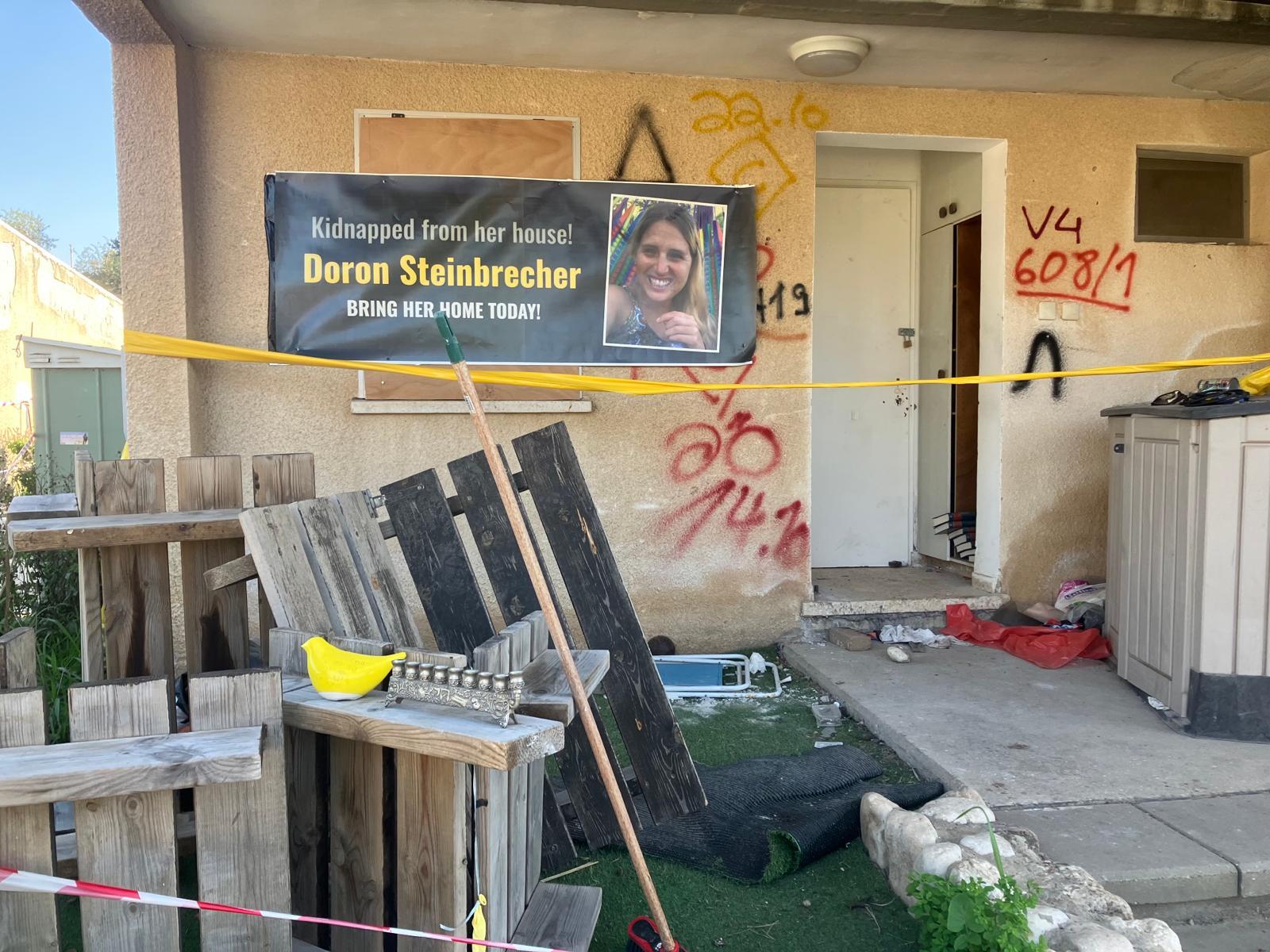
At one point, she saw a visitor try to enter one of the homes and politely asked her to step back.
Cohen said this is another reason she wanted to come back home — so there would be a local present to ensure that visitors weren’t overstepping any boundaries.
The destruction is astounding. At one point, Shnurman pointed to his neighbor’s roof, which was blown out after being hit by a Hamas missile.
“It’s a casualty of war,” he said. “Usually, the government is supposed to pay for it. But this government doesn’t want to pay. They don’t want to help us.”
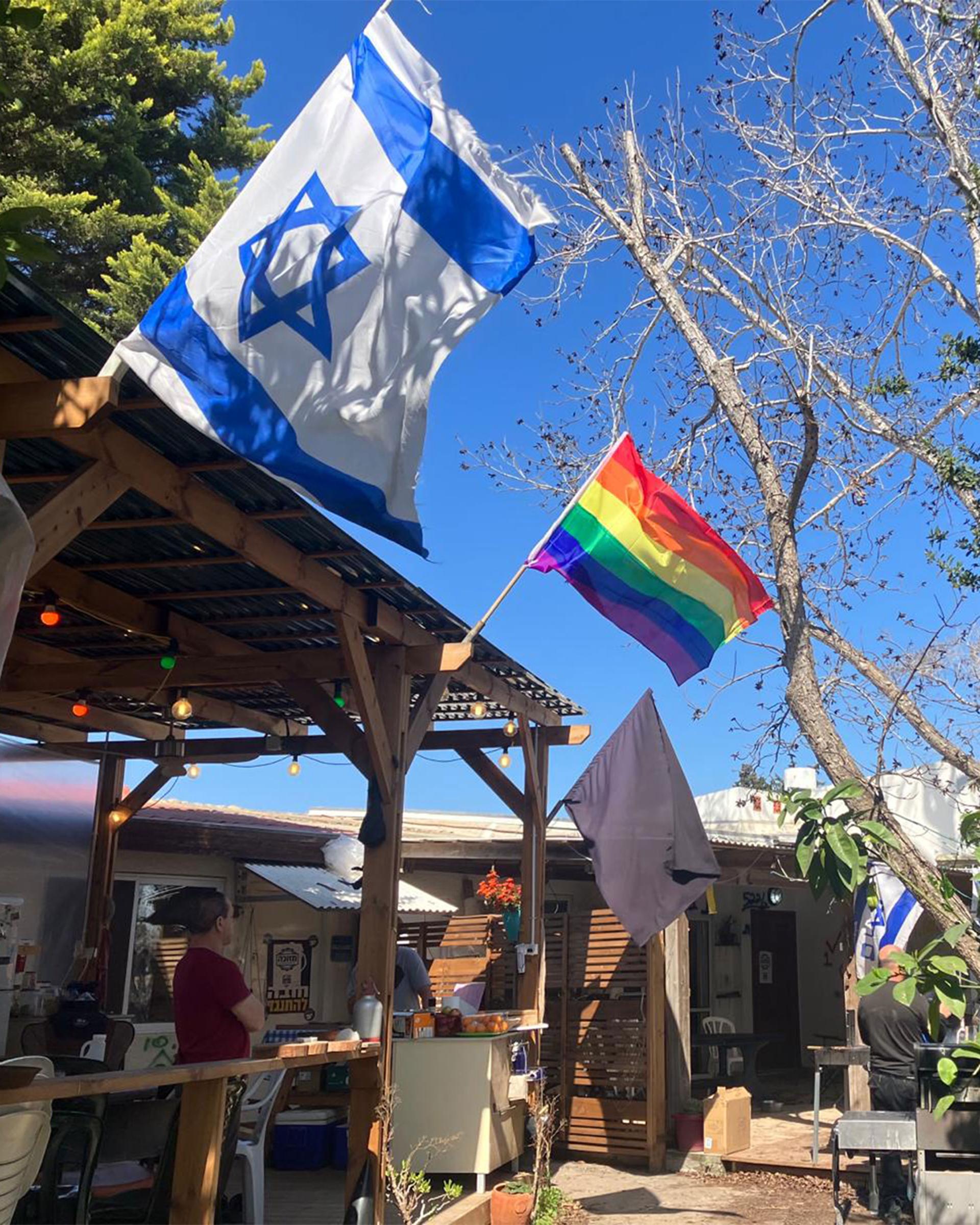
Cohen and Shnurman hope that will change, but they aren’t too optimistic.
So, they’re trying to find light in other ways.
When they arrived back at the kibbutz in December, it was at the same time as Hanukkah, the Jewish festival of lights.
One of the first things Cohen insisted they do was put up a set of rainbow LED lights on their front porch.
“I told Schachar these lights will be [up] on nonstop,” she said.
“Maybe the hostages will see it and it will give them hope,” Shnurman added. “Light is hope.”
They say the day the hostages come back is the day they’ll take the lights down.
Until then, they’ll keep glowing.
Related: ‘We need to tell the story’: Parents of an Israeli hostage in Gaza grapple with uncertainty
The World is an independent newsroom. We’re not funded by billionaires; instead, we rely on readers and listeners like you. As a listener, you’re a crucial part of our team and our global community. Your support is vital to running our nonprofit newsroom, and we can’t do this work without you. Will you support The World with a gift today? Donations made between now and Dec. 31 will be matched 1:1. Thanks for investing in our work!
